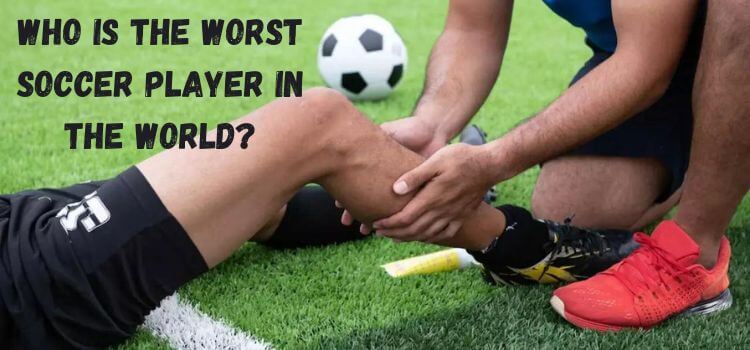As an Amazon Associate, I earn from qualifying purchases
Soccer, known as football in many parts of the world, is one of the most popular and widely played sports globally. It requires a unique combination of physical fitness, technical skills, tactical understanding, mental toughness, and, often, academic education. This article will explore the various facets of education needed to become a successful soccer player.

Physical Education and Fitness Training
Importance of Physical Fitness in Soccer
Physical fitness forms the foundation of a soccer player’s abilities. Endurance, strength, agility, and speed are crucial for performing optimally on the Field. Soccer players undergo rigorous training regimes to develop these attributes.
Types of Physical Training Required
Training programs typically include cardiovascular exercises, strength training, plyometrics, and flexibility drills. These help players enhance their stamina, power, explosiveness, and injury prevention.
Technical Skills Training
Ball Control and Dribbling Techniques
Mastering ball control and dribbling is fundamental for soccer players. They need to manipulate the ball with precision while evading opponents. Skills like close control, feints, and direction changes are honed through repetitive drills and practice sessions.
Passing and Shooting Techniques
Accurate passing and proficient shooting are essential skills for soccer players. They learn various passing techniques, such as short passes, long passes, and through balls. Shooting drills focus on improving accuracy, power, and finishing abilities.
Tactical Education in Soccer
Understanding Formations and Tactics
Soccer is about individual skills and collective strategies. Players must understand different formations and tactical approaches, such as possession-based play, counter-attacking, and pressing. This knowledge enables them to adapt to various game situations effectively.
Decision-Making on the Field
Quick decision-making is paramount in soccer. Players must analyze the game’s dynamics, anticipate opponents’ moves, and make split-second decisions regarding passing, shooting, or dribbling. Tactical awareness and game intelligence are developed through experience and coaching.
Mental Preparation and Psychological Education
Handling Pressure and Stress
Soccer is a high-pressure sport where players face intense scrutiny and expectations. They undergo mental training to manage stress, stay focused under pressure, and overcome setbacks.
Techniques like visualization, breathing exercises, and positive self-talk enhance mental resilience.
Building Confidence and Mental Toughness
Confidence is a crucial attribute for soccer players. They learn to believe in their abilities, bounce back from failures, and stay composed in challenging situations.
Mental toughness enables them to persevere through adversity and maintain peak performance levels.
Academic Education for Soccer Players
Importance of Balancing Education and Soccer
While soccer demands significant time and commitment, academic education should be addressed. Balancing studies with training helps players develop a well-rounded personality and provides a fallback option if their soccer career doesn’t pan out as expected.
Scholarships and Educational Opportunities
Many soccer academies and clubs offer educational support to aspiring players. Scholarships, tutoring programs, and online courses allow them to pursue academic qualifications alongside their sporting endeavors.
Education remains a valuable asset regardless of their success in soccer.
Professional Development Programs
Academies and Development Centers
Soccer academies and development centers play a pivotal role in nurturing young talent. These institutions provide aspiring players with comprehensive training, expert coaching, and competitive opportunities.
They serve as stepping stones towards professional soccer careers.
Mentorship and Coaching Programs
Guidance from experienced mentors and coaches is invaluable for young soccer players. Mentorship programs pair them with seasoned professionals who offer insights, advice, and encouragement.
Quality coaching enhances their technical, tactical, and psychological development.
Case Studies of Successful Soccer Players
Examining the educational journeys of successful soccer players provides valuable insights and inspiration.
From their early training years to professional achievements, these case studies demonstrate the significance of education in shaping a player’s career trajectory.
Conclusion: Education Needed to Become a Soccer Player
Becoming a successful soccer player requires more than just exceptional athletic abilities. It demands a holistic approach encompassing physical fitness, technical skills, tactical understanding, mental resilience, academic education, and professional development. Aspiring soccer players can maximize their potential on and off the Field by embracing lifelong learning and continuous improvement.
Unique FAQs
While formal education isn’t mandatory, it benefits personal development and career prospects beyond soccer.
It’s never too early to start honing your soccer skills and knowledge. Many successful players begin training at a young age.
Many clubs offer educational programs, scholarships, and tutoring to support their players’ academic pursuits.
Proper time management and support systems allow dedicated individuals to balance academics and soccer.
Mental training is crucial for handling the psychological challenges of soccer, such as pressure, stress, and performance anxiety.
Read Our More Articles
- Do Soccer Players Take Creatine? The Ultimate Guide
- Is Creatine Good for Soccer Players? An In-Depth Look
- How to Date a Soccer Player: A Complete Guide
As an Amazon Associate, I earn from qualifying purchases


